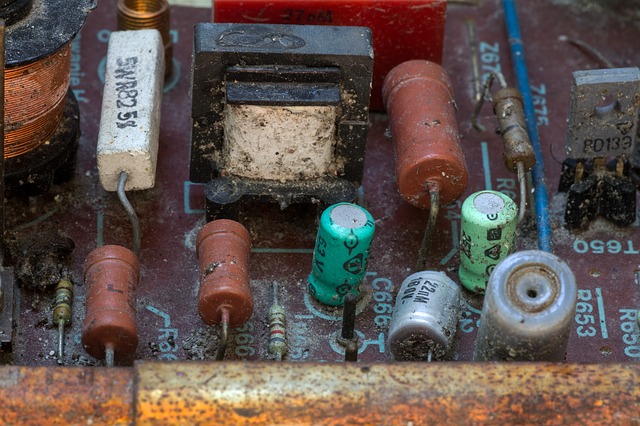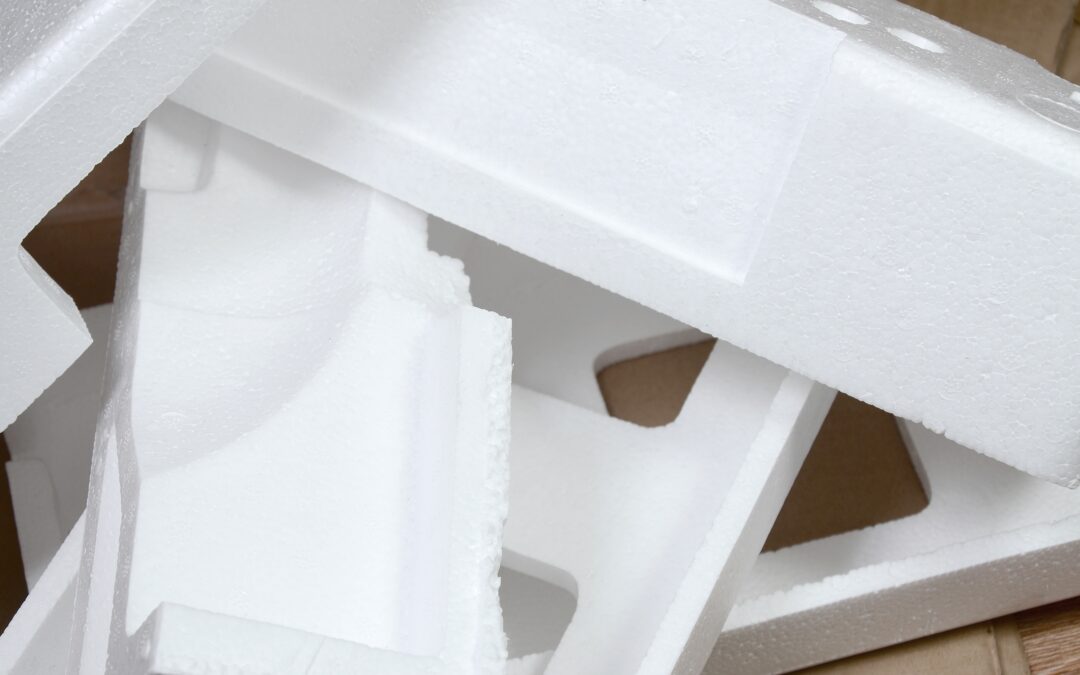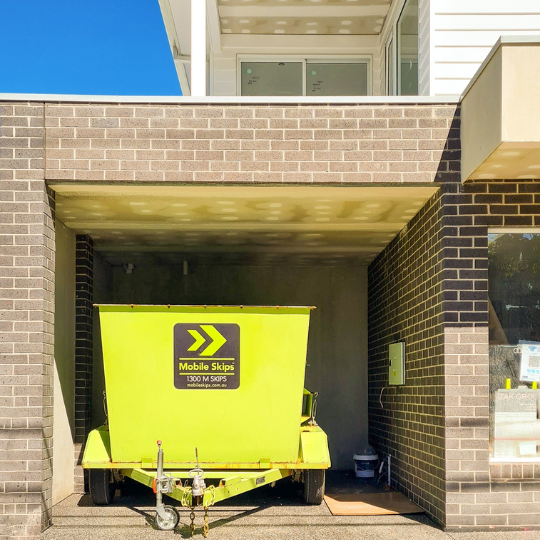One of the most defining characteristics of the 21st-century is the massive proliferation of technology in our daily lives. It appears as if advances in technological resources have hijacked human lives as we try to navigate through our daily routines via a series of gadgets.
These gadgets, however, do not come without a cost. While climate change has ailed humankind for several decades, the menace of technological pollution is the latest uphill battle for our survival.
Simply put, technological pollution results from electronic waste, better known as e-waste. In a year, we produce millions of tons of this kind of waste in a single year. To quote the Australian Bureau of Statistics, Australia alone produced over 465,000 tons of e-waste in 2016.
Table of Contents
Owing to a slow rate of recycling, this waste piles up to create disastrous ramifications.
What is E-waste?
To understand the problem at a deeper level, you must first understand the meaning of e-waste. Electronic waste refers to all the electronic devices and gadgets that are of no use anymore and, consequently, discarded.
Right from your phones, laptops, and televisions to air conditioners, refrigerators, washing machines, and more, gadgets and machines that would turn into electronic waste surround you.
What Comes Under E-waste?
Here are a few different categories of classifying e-waste:
- Consumer Goods: This category includes televisions, DVD players, radios, mobile phones, electric scooters, and similar.
- Commercial Goods: This category includes laptops, tablets, computers, scanners, copiers, printers, and similar.
- Lighting Goods: This category includes devices like LEDs, CFLs, and others.
- Heavier Machines: This category includes machinery like washing machines, air conditioners, vending machines, refrigerators, and similar.
Technological Pollution – Why Is It Important to Recycle E-waste?
A report by the United Nations states the world, on the whole, produced 48.5 million tons of e-waste in the year 2018. This shocking statistic should give you an idea of the rampant scale at which this problem exists.
While the world is battling with the consequences of man’s constant exploitation of nature, our technological growth also comes with serious repercussions. Technological pollution is simply one of them.
The rate at which we generate electronic waste far exceeds the rate of recycling for this waste. This naturally results in an imbalance that can threaten human safety as well as environmental health.
Listed below are some of the most pertinent reasons why recycling e-waste is an absolute necessity.
1. We Are Producing More E-waste Than Ever
As already mentioned, advances in technology have greatly altered human lifestyles. People are increasingly buying gadgets and devices, leading to the accumulation of discarded devices.
If you consider the number of phones you have used and thrown in the last ten years, you would realise how pressing this problem is. The need to recycle is a direct concomitant of the massive, endless quantum of waste we generate every year.
2. Electronic Waste Is Harmful to The Environment
Most kinds of wastes affect the environment adversely, and electronic waste is no exception. Electronic devices generate toxic substances that can create fatal consequences for plants and animals. When this waste goes into landfills, the toxicity travels right down to the groundwater.
When e-waste is heated or burned, the air is filled with chemicals that can harm both humans and nature.
3. Tons of E-waste Is Collected in Some Locations
The need to recycle becomes even more exigent in the face of mammoth landfills heaps of e-waste. Most electronic waste travels from across the world into particular locations in developing countries like China and Vietnam.
The accumulation of such toxic materials in a single location simply multiplies the threat level. It becomes a bigger hazard for the surrounding environment and the individuals involved in handling these plants.
4. E-waste Is Detrimental to Human Health
Electronic waste is undoubtedly disastrous for humans. Replete with harmful chemicals like lead, chromium, nickel, and more, these waste products can damage several organs in the human body.
The multiple ailments resulting from e-waste are evident in locations where this waste is collected.
Benefits of Recycling E-waste
If there is one thing you need to know about e-waste, this waste is dangerous. While we face the battle against climate change, we can practice caution to prevent this situation from worsening. Recycling electronic waste is the most potent solution to deal with this contingency.
Here are a few ways in which the world can benefit from the decision to recycle:
· It Is Good for The Environment
Recycling e-waste greatly minimises the risk of endangering our natural resources via exposure to toxic chemicals.
The harmful material emanating from e-wastes pollutes all-natural resources, be it water, air, land, or groundwater. It also enters the food chain and harms animals. Recycling minimises this damage to the extent that there is no rampant damage to the environment.
· It Is Beneficial For Safeguarding Human Health
We compromise on our health in the face of pollution of any kind, and recycling is a good way to prevent the same.
As mentioned above, e-waste is filled with chemicals like chromium, nickel, and more. These can harm human health in multiple ways, both unknowingly and knowingly. Recycling offers an option to eliminate these chemicals from our surroundings and lessen the threat.
· It Can Save Up Large Landfill Spaces
E-waste is mostly piled up in large landfills. It not only creates large-scale pollution but also occupies massive land areas for no productive purpose.
By not heaping up landfills with e-waste, recycling helps in securing larger lands for other useful objectives. Landfills are often ill-maintained and become health hazards for everyone living in the proximity.
· It Can Create Employment Opportunities
Recycling e-waste does not simply benefit environmental and human health. It is also beneficial for our monetary growth. Studies indicate the promising scope of creating millions of jobs in the recycling sector.
Recycling plants for electronic waste would require manpower. This would ultimately help in creating job options for both skilled and unskilled workforce.
· It Saves Money
Tech companies can save big through recycling. Extracting new materials to create an electronic product from scratch would be many times costlier than building it from recycled materials.
This can produce multiple positive results for manufacturing companies. By recycling the old and discarded lot, the producers can create the same product at a lesser price. It can also benefit the end-user through a reduction in the final costs.
Steps to Control E-waste
Now that you know the benefits of recycling electronic waste, you should get started right away! Recycling any e-waste in Australia is not difficult to manage. However, you can also take some other steps to prevent the menace of technological pollution.
The following section details some potential solutions to control the problem of e-waste in Australia. It also throws light on the ways producers can adopt to contribute constructively.
Visit an E-waste Recycling Center
The first and most popular solution for recycling your old devices is to seek help from experts. You can find any local recycling centre in Australia to know the process and other details.
If you are unwilling to visit, search for an online recycling store in Australia that provides recycling facilities. This way, you can get the junk off your hands without facing the guilt of harming the environment.
The idea of recycling has garnered a lot of attention in the face of increasing technological pollution. In this scenario, many tech companies find paths to make the recycling process more convenient and fail-proof. A great example from the international domain is Baidu Recycle.
Baidu Recycle is a joint initiative of the United Nations Development Program and Baidu, a Chinese internet giant. The program offers greater accessibility and convenience to give away your devices with only a few clicks.
The users have to fill in some details simply, and an executive will come to pick up their device.
Send Your Gadgets Back to the Company
Another great way to indirectly contribute to the recycling process is by sending the device back to the company. Most electronic companies offer this option.
You can simply contact the company via call or mail to express your wish to recycle. In their response, send back your device to their given address. The company will then use good parts, if any, and recycle the rest of the product.
You can even contact recycling companies in Australia to avail of their pickup facility and give away your discarded gadgets for recycling. There are four organisations with governmental approval to run a recycling centre for e-waste in Australia:
- TechCollect
- Electronics Product Stewardship Australasia
- E-Cycle Solutions
- Drop Zone
National Television and Computer Recycling Scheme.
The Australian government’s initiative to recycle e-waste gives you the option to recycle waste products free of cost. This industry-funded program is available across every nook and corner of the country, from metropolitans to remote regions.
The NTCRS operates in several ways. It can have a permanent location or a retail outlet. In some locations, it also conducts e-waste recycle events based on suitability. You can easily search for a drop-off point near you and unload your discarded items.
Rent, Don’t Buy Electronic Items.
One of the most popular solutions vouched for these days is the possibility of renting electronic devices. Instead of going for the use and throw approach, you can explore the prospect of renting some items. This works best for devices that can be discarded soon or are not used so often.
A video project, for instance, might come in use less frequently. Therefore, it is a good example of what you can rent. Many online companies provide options to rent electronic products of your choice and preference at affordable prices.
Practising Extended Producer Responsibility.
Another potent solution for the rampant e-waste problem is practising extended producer responsibility. This approach shifts the responsibility to recycle on the producers of electronic products. Therefore, the manufacturing companies will take care of the disposal methods.
With this approach, producers can turn the waste they receive into reusable resources for manufacturing new products. Under this system, the producer cannot escape the accountability for disposing of the electronic dump. They would be required to pay for the proper disposal.
Promoting the Concept of Circular Economy.
The idea of a circular economy emphasises the continual use of resources with minimum wastage. By this token, there is a greater emphasis on recycling to the point where the concerned resource is exhausted or rendered useless.
A circular economy can prove to be a significant solution to the problem of electronic waste. Technological pollution results from the repeated accumulation of discarded electronic products without proper recycling. In a circular economy, the idea of discarding will be eliminated.
Users can be encouraged to give their devices and gadgets for recycling. This way, the products will cost less for both the users and the manufacturers alike. This is because the producers can recuperate production costs by simply recycling some parts from a used item.
Encouraging this business model for major tech companies in Australia is a forward-looking solution.
Summing Up.
The momentous technological advancement of our times comes with its own set of challenges. The surge of e-waste is one of the most pressing challenges ailing humankind.
With the latest technology growth, the quantum of e-waste generated every year will simply keep on increasing. There is no end in sight for the minimisation of electronic junk due to the rapid tech trends changes.
So, the need to recycle electronic junk rather than discard it is of utmost importance.
Individuals can adopt some small steps to prevent the production of electronic waste. At the same time, producers can also practice some simple solutions and take up greater accountability for disposing of electronic junk.
The above-listed resources can come in handy if you wish to recycle your e-waste.
Check out our other articles here: https://mobileskips.com.au/news






